14th April 2014
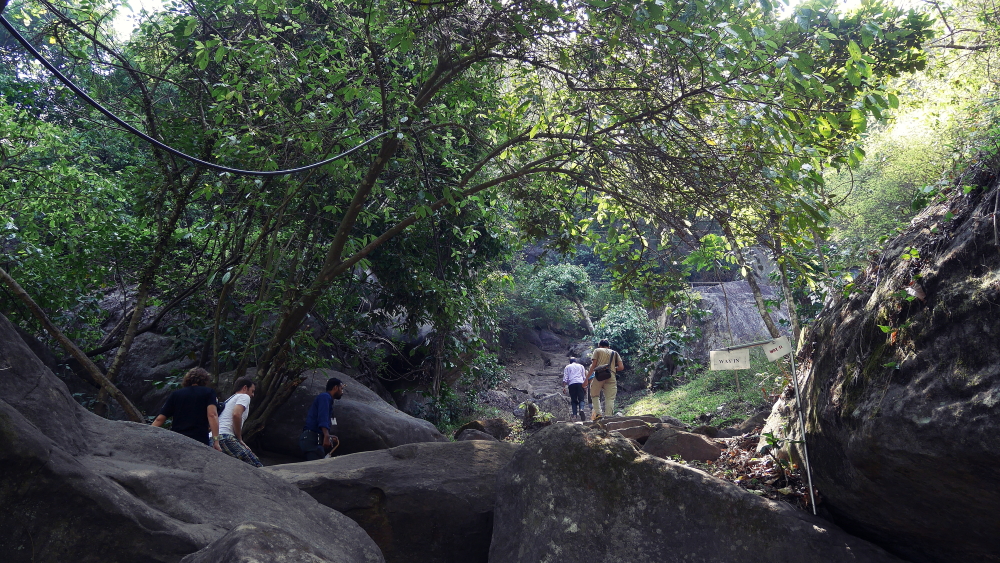
Walking up the stone stairs (Photo: Dina from Dua Ransel)
Like any other day, the sun was baking intensively and I felt like a roasted chicken on legs walking up the steep mountain road. We were making our way up to the natural caves at Edakkal for a quick peep into prehistoric times. The Edakkal Caves are located 1000 metres above sea level on Ambikuthi Mala in the Wayanad district of Kerala. While the road to the top is steep, the trek itself is nothing more than 1 km walk from the foot hill of Edakkal. I have to say, the trek combined with the heat took my breath away. However, don’t let this scare you from visiting this place. The trek is not strenuous and wont be a challenge for most people. Well unless you’re like Dina – a wounded soldier with a bad leg. She did manage to carry herself all the way to the top and back down again. No soldiers down. No soldiers left behind.
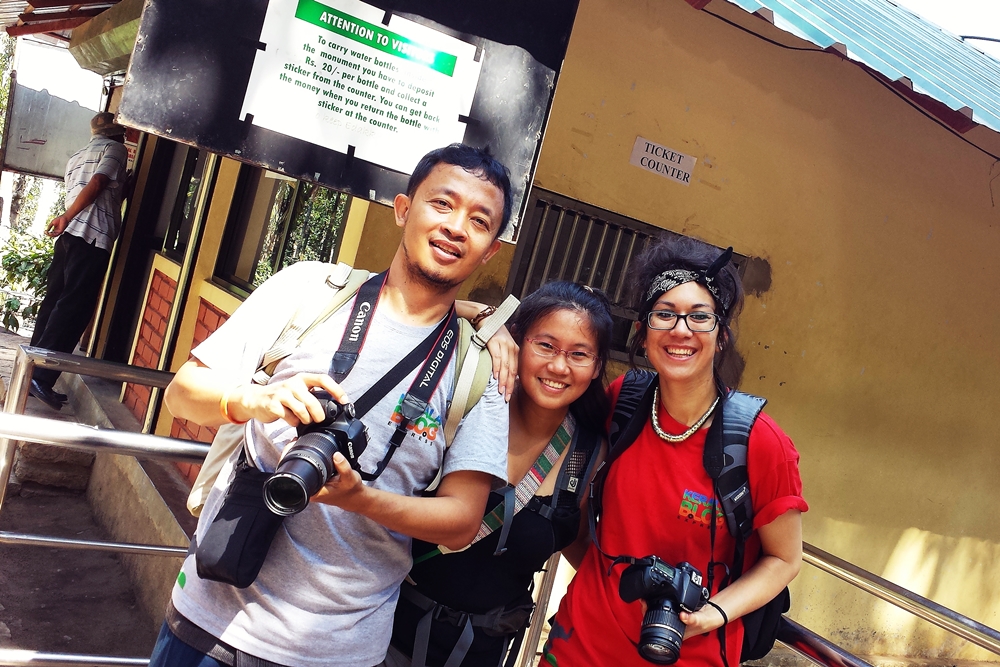
The three caballeros: Gio, Dina and I (Photo: Gaia from Gaia Passarelli)
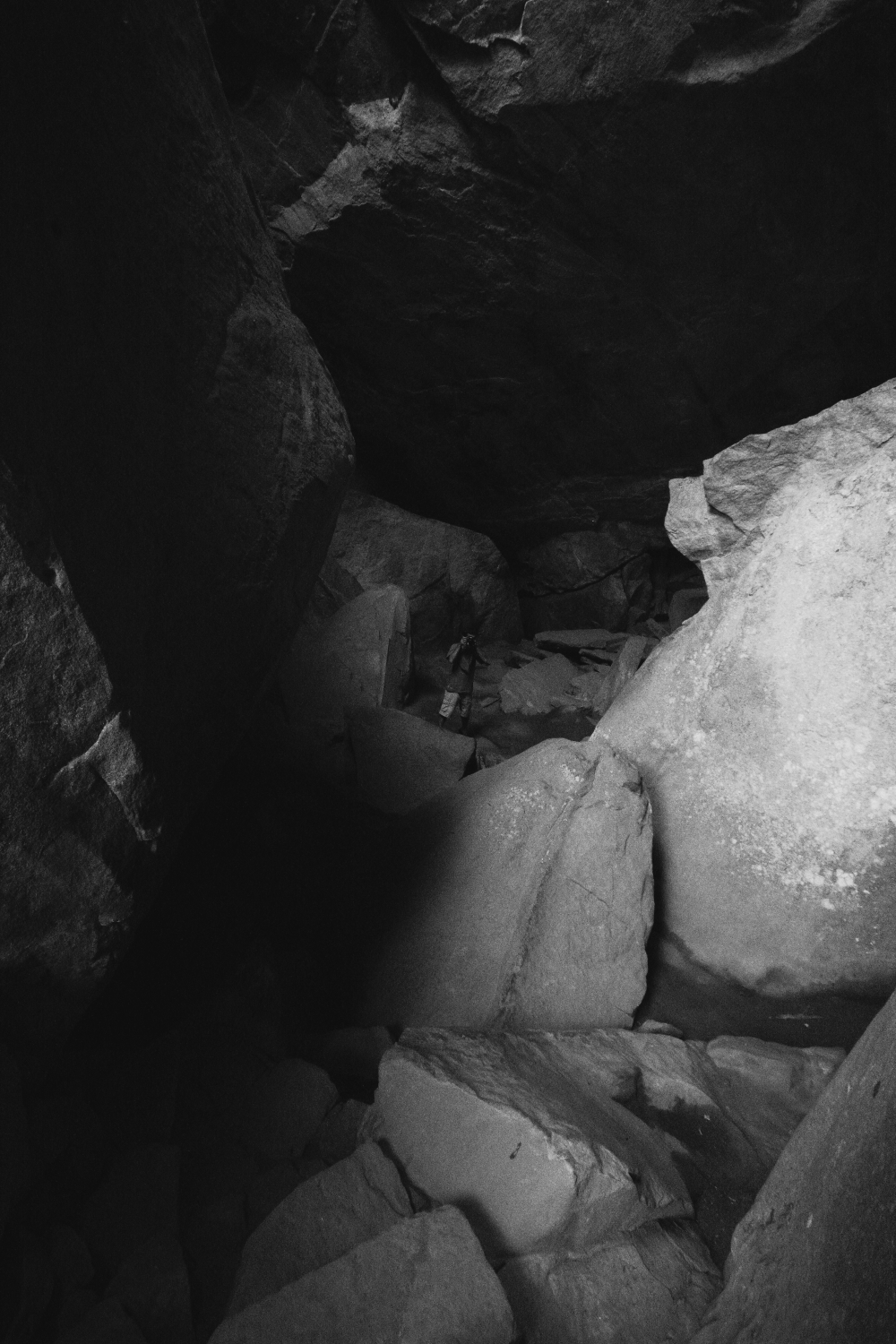
Antony in the middle of the lower cave of the Edakkal Caves
The Edakkal caves consist of two caves one above the other. We passed through the lower cave first. This place was pretty much enclosed in darkness with only small sunrays of light passing through the cracks and at the entrances of the cave. There wasn’t much to see here as the the main attraction of the Edakkal caves is located in the upper cave. We climbed a few extra steep metal staircases before we finally reached the top.
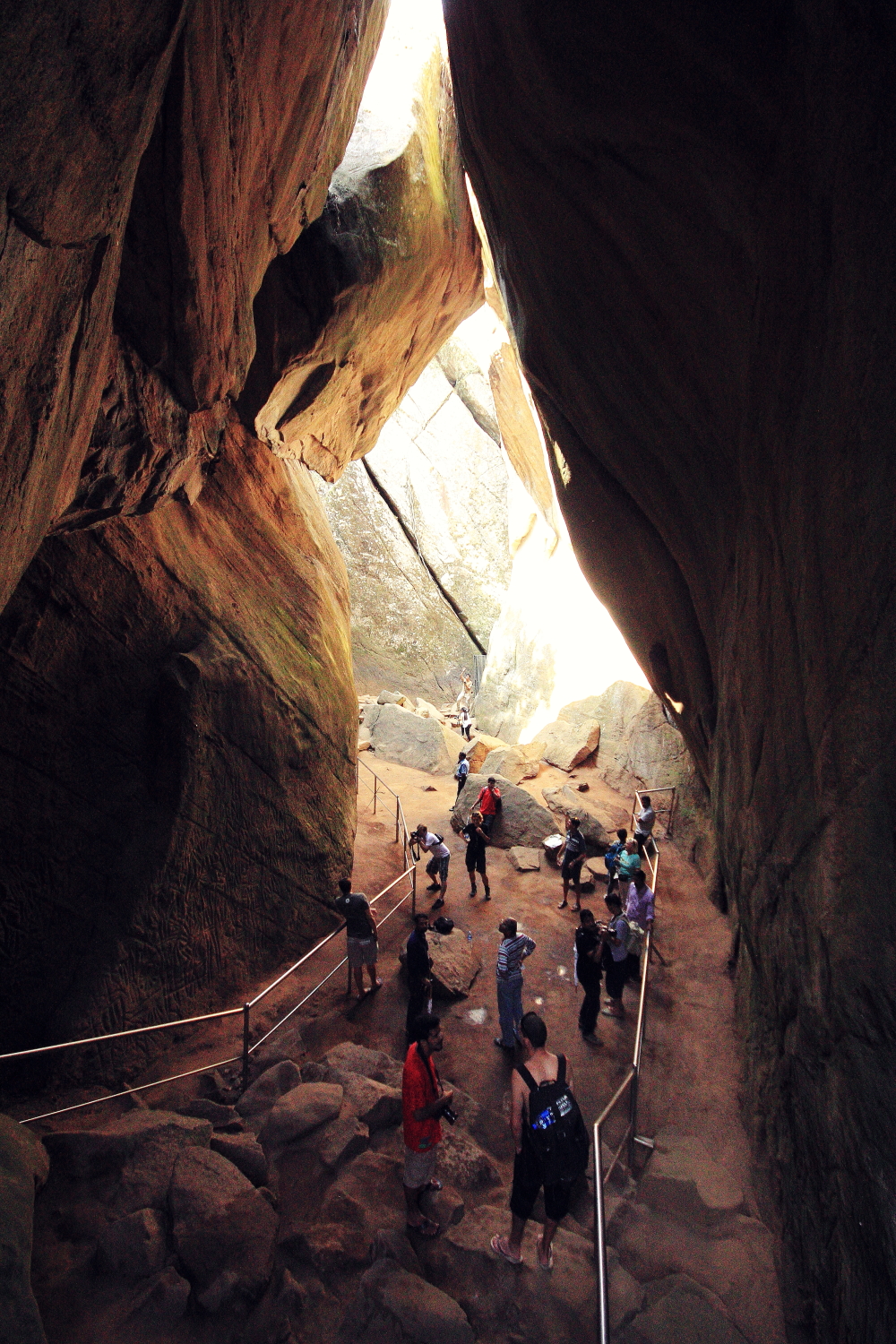
Inside view at the entrance of the upper cave of the Edakkal Caves
Standing at the entrance of the upper cave, I could already see the main attraction – the ancient carvings. They popped out of the stone wall very clearly and there weren’t just a few carvings here and there. No no. The wall resembled a well-decorated canvas with drawings of people, animals and tools. Up close you could actually spot quite a few human figures while other things were hard to interpret for an untrained pair of eyes. We were told that these pictorial writings were dated back to the Stone Age. In fact, three sets of writings have been discovered indicating that the caves have been inhabited at various stages in history.
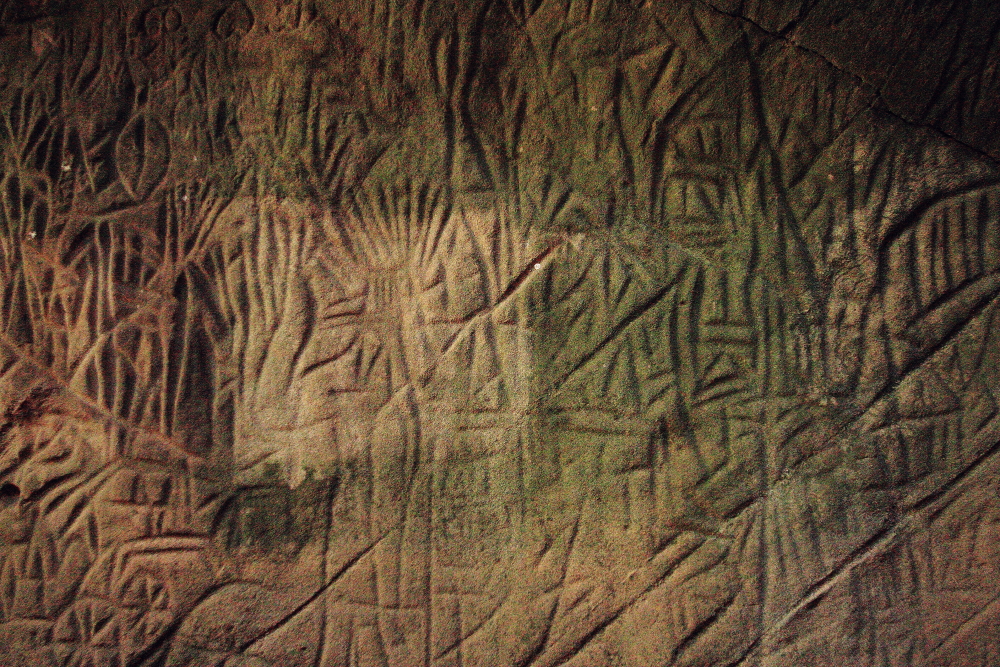
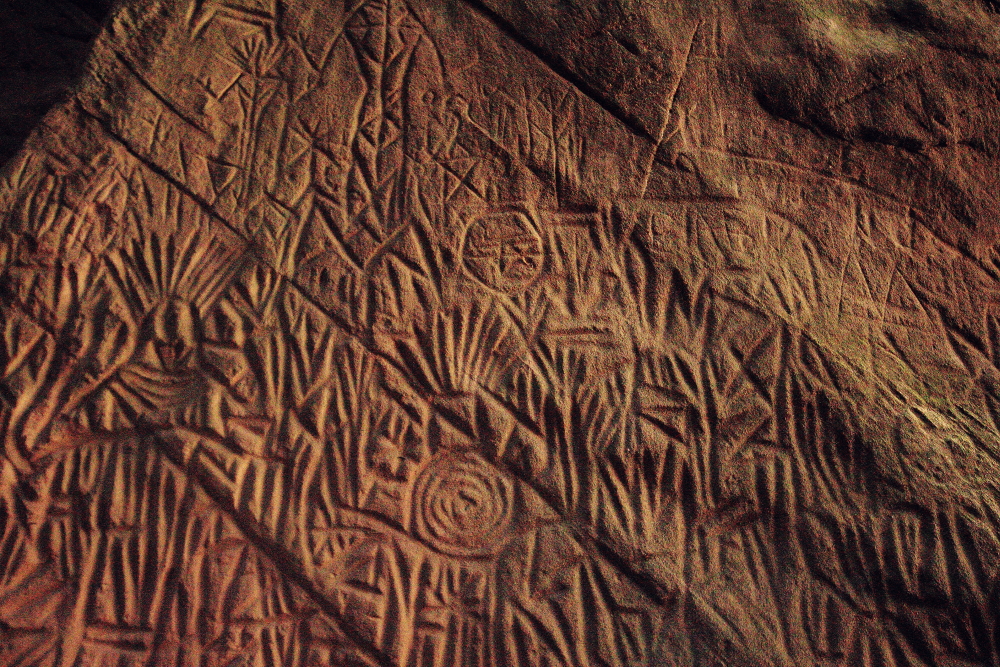
Pictorial writings carved on the inside walls of the Edakkal Caves
Our group was accompanied by a very knowledgeable guide, Subair Elakulam from Wayanad Tourism Guide, who gave us further insight to the history of the Edakkal Caves. Subair directed our attention to the ceiling of the upper cave, pointing out that the name of these caves originated from the above seen rock formation. Edakkal literally means ‘a stone in between‘ and that’s exactly what we saw inside the Edakkal Caves, when we turned our heads towards the sky. It’s actually better to described the upper cave as a cleft with a massive rock on top forming the ‘roof’ of the cave. The back part of the upper cave doesn’t even have a ‘roof’, so natural light can pass directly inside and enlighten the wall carvings during the day.
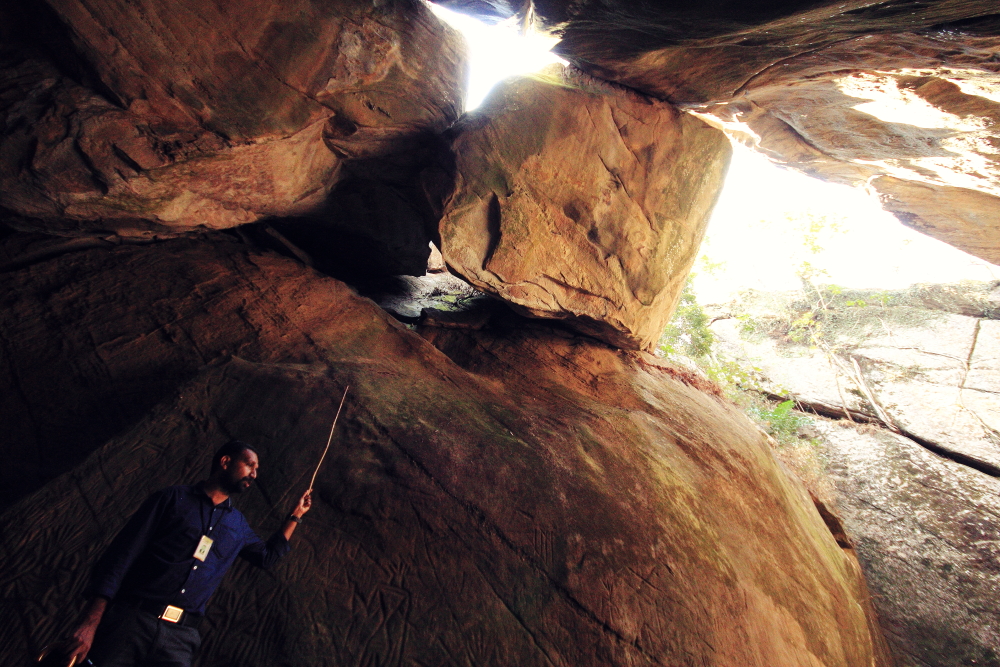
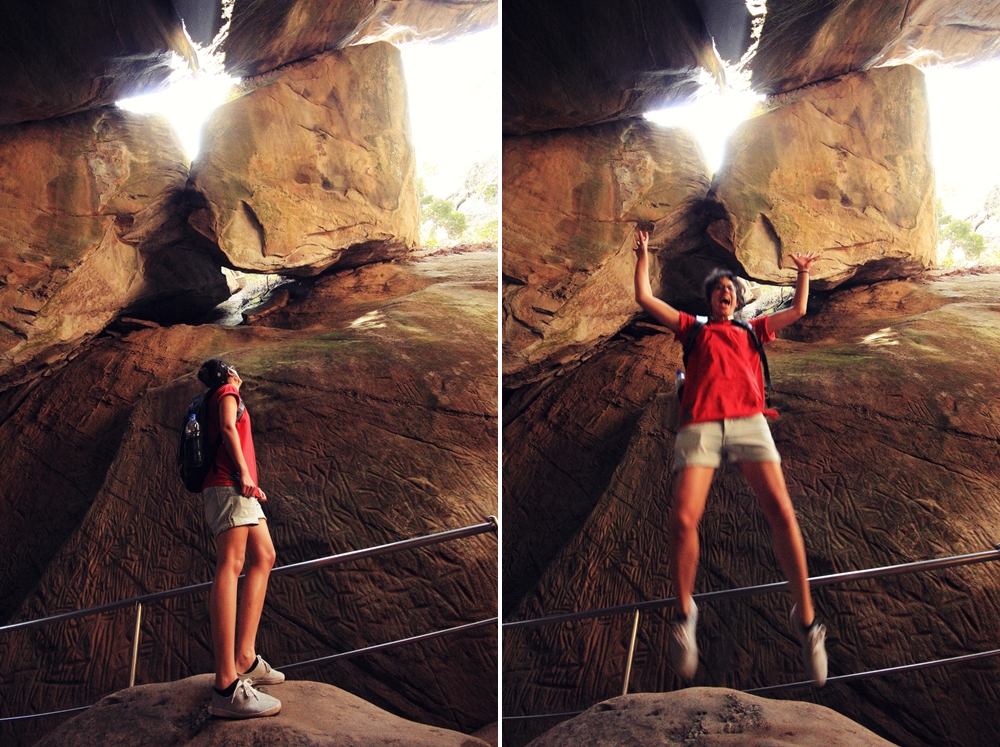
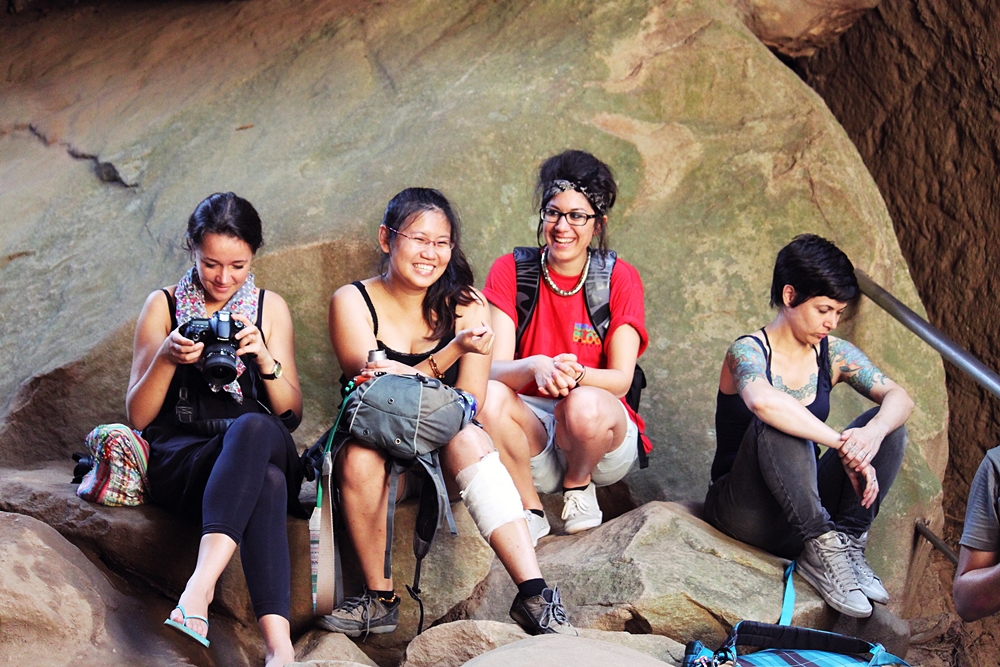
Subair Elakulam pointing towards the ‘roof’ stone · Me jumping · Caroline, Dina, Gaia and I sitting on a rock (Photo: Gio from DISGiOVERY)
Our visit at the Edakkal Caves didn’t take much more than an hour (perhaps 1 1/2 hour). Despite the short visit, I actually enjoyed going there. Mostly because of the hike itself but the sight of the carvings was pretty cool too – a nice reward for anyone who decides to conquer the steep road to the Edakkal Caves.
On a completely random note. On our way down the mountain, I remember talking with Gaia about the plant mimosa pudica perhaps better known as the shy plant because it folds its leaves inward when you touch them. The very first time I saw them was in the Philippines, when I was just six years old. They amused me back then. They still do. In extent to this conversation we started talking about those brown mushrooms which explode into a dust cloud when you step on them. Puffballs – I think they are called (støvsvampe in Danish). As kids, Sheena and I would jump on them whenever we eyed one. Gaia did the same thing with her son. It made me wonder… where the heck can you still find these puffballs in Denmark? I haven’t seen one in ages.
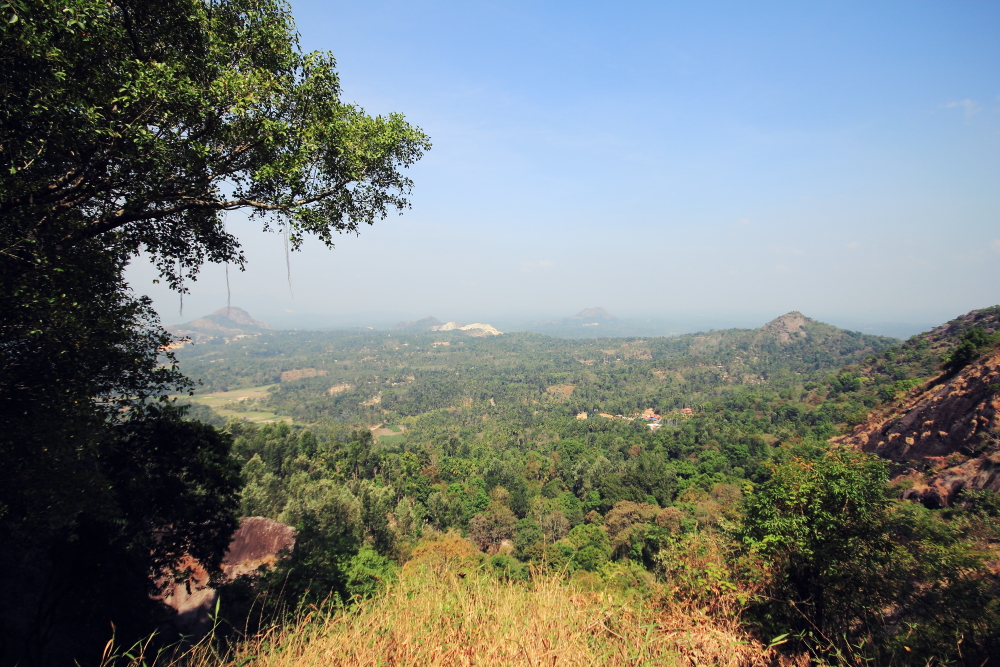


View from the top · Staircase towards the exit